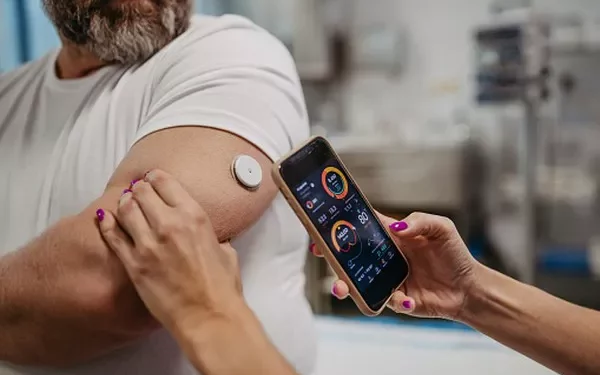A pioneering treatment for type 1 diabetes is showing promising results for patients at the University of Chicago, offering hope for those who have long relied on insulin injections. This minimally invasive procedure could potentially eliminate the need for daily insulin shots.
Three patients are currently participating in the trial at the University of Chicago Medicine. One patient has successfully stopped using insulin altogether, while another has significantly reduced his insulin requirements and aims to cease injections soon.
“This medication has great potential to be less toxic for patients and may offer better outcomes in islet transplantation,” said Dr. Piotr Witkowski, a professor of surgery at UChicago Medicine.
The medication in question, tegoprubart, has undergone modifications over the past 25 years to improve its effectiveness for type 1 diabetes patients, including individuals like Marlaina Goedel, who has been living with the condition since she was five years old.
“I have so much more energy,” Goedel remarked. “I feel so free.”
Her journey with type 1 diabetes has been tumultuous, often marked by chaos and fear. “I would go to sleep at night and think, ‘This might be my last night. I might not wake up and see my daughter ever again,'” she shared.
The tipping point for Goedel came when her daughter found her unconscious after a severe hypoglycemic episode. Desperate for a solution, she consulted three doctors about participating in islet cell clinical trials but faced obstacles until she took matters into her own hands.
“I emailed the University of Chicago and essentially wrote out my entire life story, saying, ‘Please help. I’ve had enough,'” she recounted.
After reaching out in October, she underwent the procedure on July 17. The process involved a small incision, through which islet cells were injected into her liver, compensating for her non-functioning pancreas.
Three weeks post-procedure, Goedel was off insulin. “I have a really cool scar,” she said proudly. “I show it to everyone who will look.”
Dr. Witkowski highlighted the significant improvements in Goedel’s quality of life. “Her life was severely compromised, and she couldn’t live like this anymore,” he stated.
Now, three months after the treatment, Goedel is enjoying life more than ever, indulging in foods like double cheeseburgers and exploring her passion for horses. She is currently studying horse massage and laser therapy, rekindling her dream of establishing a horse-boarding facility.
Dr. Witkowski expressed hopes for expanding the treatment’s availability to more patients, aiming to make this life-changing procedure accessible to others battling type 1 diabetes.
Related topics:
Timing Matters: Managing Type 2 Diabetes Through Time-Restricted Eating
Research Highlights Benefits of Time-Restricted Eating for Diabetes Management
Low-Carb Diet May Offer New Hope for Type 2 Diabetes Patients



























